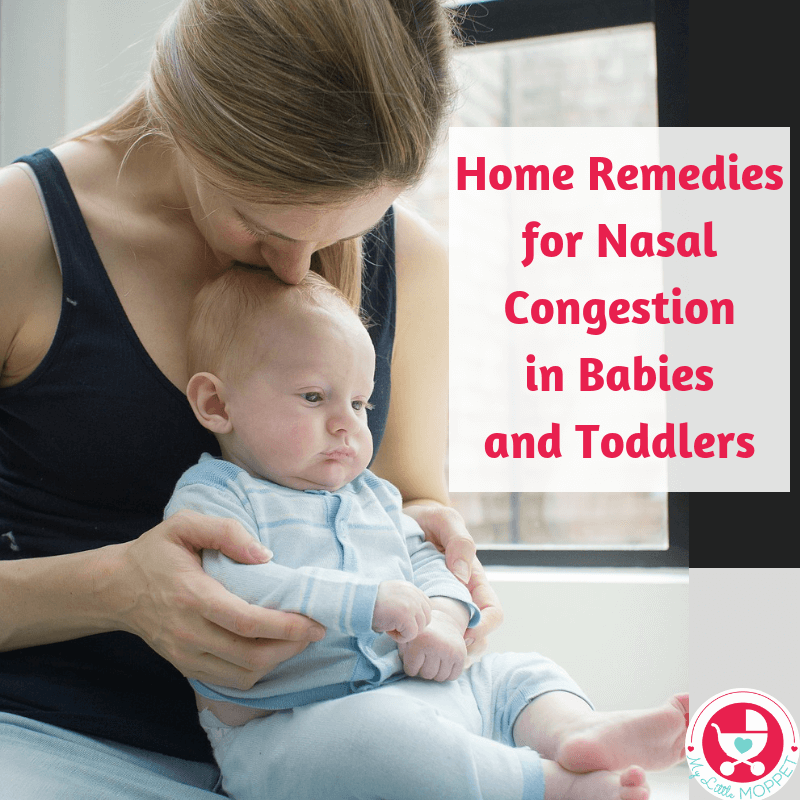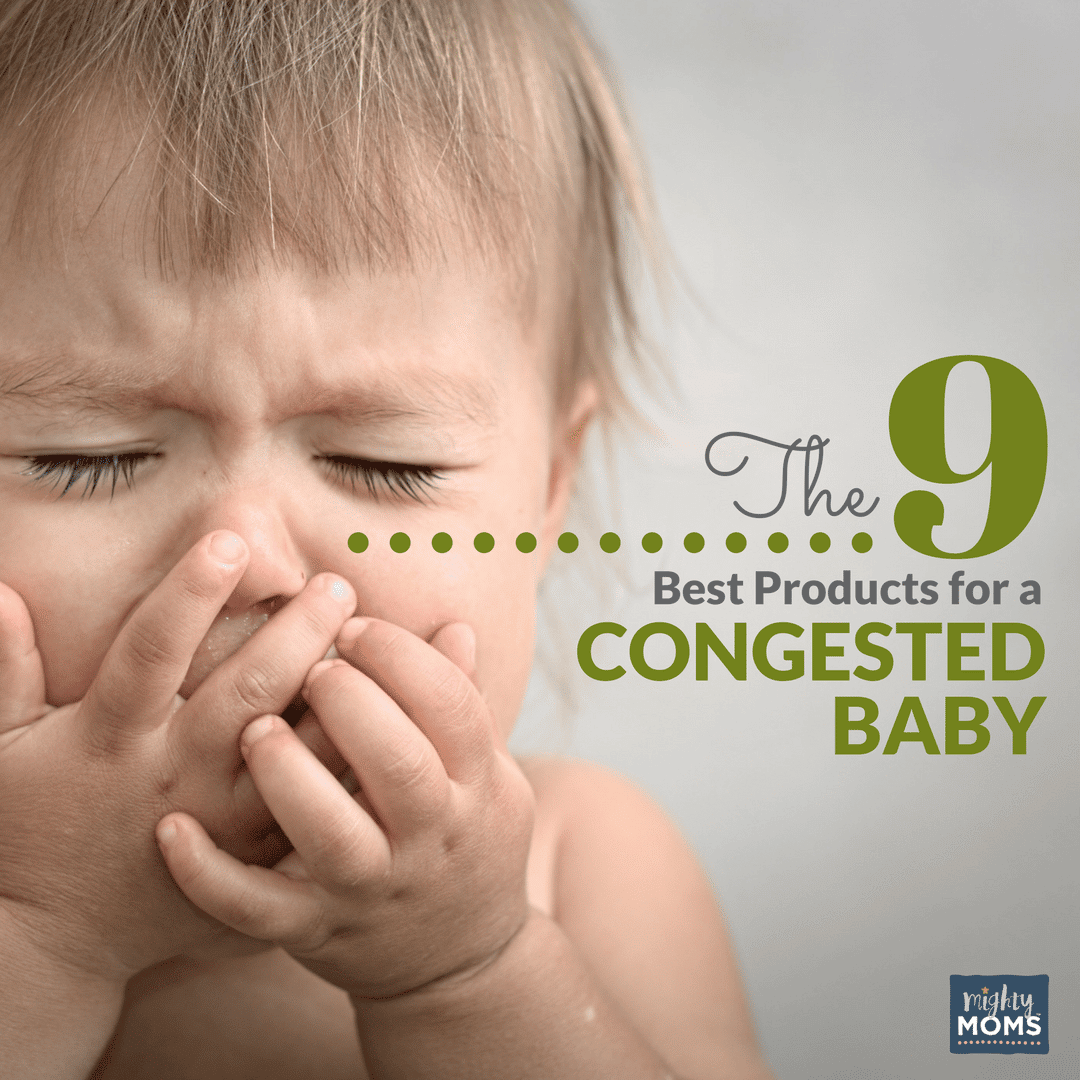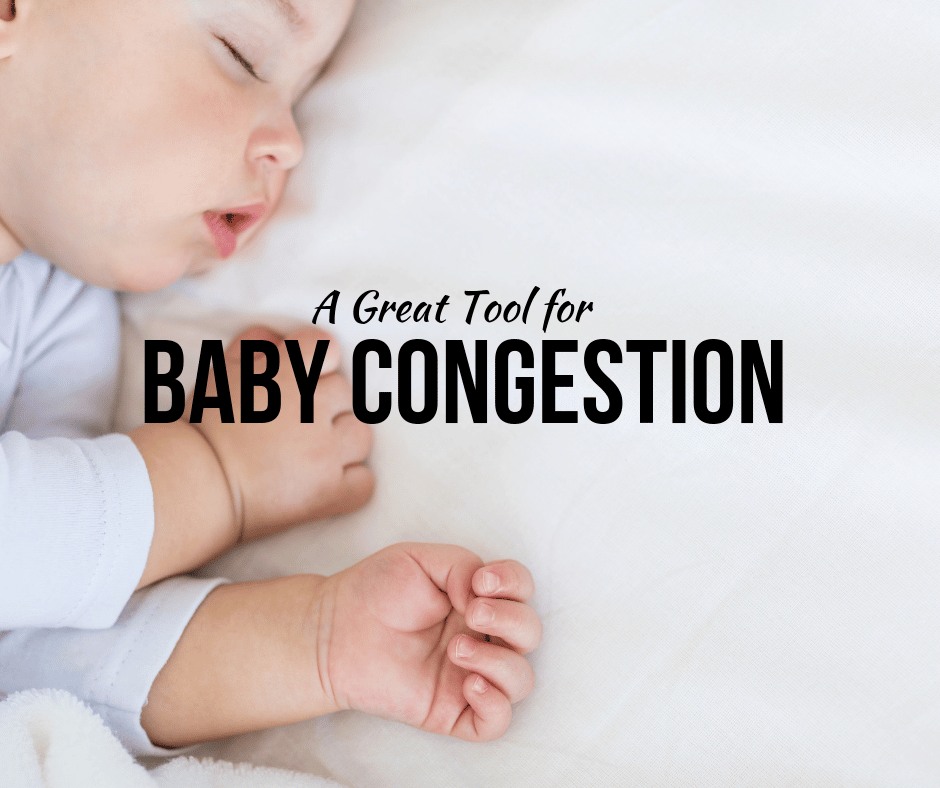Newborn Congestion How To Deal With It
Kara Wilson Editor & Infant Sleep Educator Next
Particularly as a first-time parent, you might assume that your congested baby has a cold, but what you might not realise is that newborns usually sound stuffy when they breathe. Mild to moderate congestion is common, and usually nothing to be concerned about. If a newborn gets a cold, they will develop a runny nose like anyone else. So, if it isnt a cold, why would a baby have a stuffy nose?
How Do I Know What Is Causing The Congestion
While it may seem haywire to differentiate between the symptoms, there are some things to look out for that might indicate what is causing the congestion.
Did you know?The flu causes chest congestion in babies and might need a visit to the doctor. Nasal congestion is, however, caused by the common cold and can be treated at home for mild symptoms.
Dr. Po-Chang Hsu , the medical content expert at Sleeping Ocean, says, âThe common cold is often milder and less likely to affect the babyâs appetite, sleep, or energy levels. Flu may have a more considerable effect.
COVID-19 symptoms are similar to flu and cold, making it harder to diagnose. However, it typically has a more gradual onset of symptoms. So, at first, parents may notice only one symptom, with the baby gradually showing more and more signs similar to the flu, says Dr. Hsu.
Signs That You Should See Your Doctor
- See your doctor if things dont improve after a couple of days, or they become worse.
- From about day five, your baby should have at least 5 wet nappies in 24 hours. If they dont, they may be dehydrated and not getting enough calories, so speak to your GP.
- Go to your emergency room if there are signs of respiratory problems, such as rapid or hard breathing that interferes with sleep or feeding flaring nostrils, which can be an indication that your baby is struggling to take in air if you see your babys ribs suck in on each breath moaning or grunting after each breath or a blue tint to their skin, particularly around their lips or nose.
- If your baby under 3 months old starts to vomit or has a fever, seek medical advice immediately.
Read Also: What Do You Wash Newborn Clothes In
The Difference Between A Dry And Wet Cough
If your babyâs cough sounds wet, itâs most likely due to chest congestion. The cough will often last longer than a runny nose, if your baby has that symptom as well. Itâs best to consult your babyâs healthcare provider if she has a cough, especially if sheâs under 2 months old.If the cough sounds dry or irritated, your baby most likely wonât have chest congestion. Dry coughs are often characteristic of conditions like croup or whooping cough, both of which can have a barking sound.If your baby does indeed have a dry cough that has a barking sound, or if your baby makes a wheezing sound when breathing, contact her healthcare provider as she may need prescription medication to treat the underlying cause.Be aware that experts do not recommend over-the-counter cough medicine for children younger than 6 years old as it may cause serious side effects such as slowed breathing.
Baby Could Have The Common Cold Virus

Most of the time, baby congestion isnt really painful for them, but it can affect their sleeping, especially if they get the common cold virus, says Duda.
What you can do: If baby sounds congested and has a stuffy nose at night, Duda suggests elevating their head while they sleep. Putting them in their baby car seat or even swing so they are in an upright, elevated position can help drain some of that mucus, she says.
Still have a baby with a stuffed up nose on your hands? Try saline drops for babies noses that help clear out some of that mucus, as well, says Duda.
Recommended Reading: How To Get Social Security Card For A Newborn
When Should You Call The Doctor
If your childs stuffiness is accompanied by a fever, ear pain, a sore throat and/or swollen glands, or you suspect there is a foreign object stuck in her nose, call your pediatrician right away. If your little one’s breathing becomes labored, even through the mouth, that also warrants an immediate call to your pediatrician’s emergency line or 911 .
Youll also want to get your child tested for COVID-19 if shes experiencing symptoms , and isolate her as best as possible for 10 days if she tests positive. Consult the Centers for Disease Control and Prevention COVID-19 guidelines , and check in with your familys pediatrician if you have any questions.
You’ll also want to consult your doctor if you suspect an allergic reaction to any environmental pollutants, which is rare in babies, or if the nasal discharge is green, bloody or smells bad.
Sometimes those secondary symptoms are hard to discern in a baby, so if youre worried about your little ones plugged-up nose and her general comfort, a call to your practitioner is a good idea anyway, if only to ease your mind.
How To Unclog Baby Nose Using Saline Spray Or Nose Drops And A Bulb Syringe Or Infant Nasal Aspirator
- For infants, saline nose drops will be easier to use. For young children and beyond, saline sprays can be used. Both options help loosen the mucus and bring it down into the nose, making it easier to clear by wiping, suctioning, or blowing for the older kids.
- Put 2-3 drops or sprays into each nostril. Your baby might sneeze or cough with this – thatâs okay and might actually help clear the nose too!
- If you choose a nasal suction bulb, make sure you squeeze the bulb first to get rid of the air and keep it compressed while you insert the end of the bulb syringe into your babyâs nostril. Donât go too far or it will irritate their nasal passage. Once in the nostril, release the bulb syringe to let air back in. This creates the vacuum and will pull mucus into the bulb with the air.
- If you choose an infant nasal aspirator, place the soft tip into the babyâs nostril – again, not too far. You will then inhale through the mouthpiece and mucus will be caught in the filter .
Itâs never fun to watch when your little love is miserable. And then you add boogies and less sleep to the mix and it leaves you praying for healthier days. Youâll get there! Trust your instincts and if everything feels okay , let this run its course. And donât leave the house without kleenexes, youâre gonna need âem!
Recommended Reading: How To Raise A Newborn Baby
Keeping A Baby’s Sleep And Play Areas Free Of Dust
Hygiene goes a long way as far as naturally promoting good health including keeping your babys nasal passages clean and clear so that they inhale only fresh air.
When breathed in regularly, dust can contribute to larger bits of dried-up mucus. Dust is also said to stimulate allergic reactions which can cause nasal congestion.
Naturalhome remedies are the best form of medicine for infants, especially for those under the age of 2. And when it comes to babys stuffy nose, natural is the way to go. Nasal congestion is no fun for anyone, especially for your little one who has no way of unblocking their nose on their own. Using a nasal aspirator like Bubzi Co.’s Premium Baby Nasal Aspirator allows parents to unblock babys nose quickly and easily, providing them with instant relief! And if you combine the nasal aspirator with any one of the 10 tips above, your little one will be feeling better in no time. Theyll be able to get the sleep they need to get back to their happy and adorable selves!
Nose Drops And Suction
Squeeze one to two drops of saline nose drops in each nostril to help loosen any dried mucus and then use a rubber suction bulb.
To use it, first squeeze the bulb. Next, gently stick the tip of the bulb into a nostril. Finally, slowly release the bulb and it will pull out clogged mucus. Repeat on the other nostril.
You may want to use saline nose drops before each feeding to help your baby breathe more easily while eating, Dr. Danan says.
Also Check: How Often To Feed Newborn Baby Formula
Feed Your Baby Probiotics
A small dose of probiotics in your babys milk or formula can strengthen their immune system and help clear up any congestion. Look for probiotics with names like Bifidobacterium animalis, Lactobacillus acidophilus, and Bifidobacteria.
While research has shown that probiotics are safe and effective for newborns, its always best to check with your doctor before giving your baby anything other than milk.
Can I Protect My Baby If I Have Covid
If you test positive, and have a newborn or infant at home, there are some protective steps you can take. These include hand-washing before providing care, and wearing a mask when breastfeeding or in close contact. Current evidence suggests COVID-19 cannot be spread through breastmilk.
Read more:Should I get a COVID vaccine while Im pregnant or breastfeeding? Is it safe for me and my baby?
Its still really important to continue breastfeeding and there is no need to separate mother and baby.
Transmission from older siblings and other close contacts may also be reduced by vaccination. Vaccination of parents and caregivers will also reduce their chance of severe disease, thereby minimising the risks and interruptions for mother and baby.
You May Like: What Is The Best Formula For Newborns
Also Check: How Many Times A Day Should A Newborn Poop
When To Get Medical Advice
-
Symptoms get worse or new symptoms develop
-
Nasal discharge persists for more than 10 to 14 days
-
Fast breathing. In a newborn up to 6 weeks old: more than 60 breaths per minute. In a child 6 weeks to 2 years old: more than 45 breaths per minute.
-
Your child is eating or drinking less or seems to be having trouble with feedings
-
Your child is peeing less than normal.
-
Your child pulls at or touches his or her ear often, or seems to be in pain
-
Your child is not acting normal or appears very tired
Recommended Reading: How To Get Rid Of Newborn Gas
Allowing A Baby To Cry

Although this sounds unusual, tears may actually end up in the nasal passageway and help with dissolving a babys mucus. A childs tears can effectively soften and help eliminate dried-up bits of boogers from its nasal passageway.
Parents can also use a soft cloth to dab at the baby’s nostrils regularly when the kids cry so that the nasal passageway can be cleared naturally.
You May Like: What Should I Be Doing With My Newborn
Why Didn’t Anyone Tell Me About All The Noises Newborns Can Make
I still remember bringing my firstborn daughter home. I had read every book I could get my hands on, I was a pediatrician-in-training and I had worked with children my entire life, leading up to that moment. I felt about as prepared as they come. The first two nights in the hospital were a breeze, as they often are, because children have a funny sense of humor. They love to give their parents a false sense of security. It is just like when they come to the doctor’s office and act completely healthy, when five minutes ago, at home, you were wondering if you needed to take them to the emergency room because they looked deathly ill. Don’t worry folks, this pediatrician is a mom too your kids don’t fool me.
In my daily practice at Texas Childrens Pediatrics Fall Creek, I often reassure new parents about the noises newborns can make . These noises are rarely explained in baby books and most people don’t warn us about them. These noises are also normal. Here are some of the possible things your cute little bundle may be doing in the wee hours of the morning:
Give Your Baby Extra Tlc
When your baby has a sniffle, cold, or stuffy nose, making them comfortable and doing what you can to relieve their congestion is the name of the game. And showering them with some extra hugs and kisses is part of that. Never underestimate the power of a little extra TLC! Dont wait to stock up on fragrance-free, hypoallergenic products, like Babo Botanicalss Sensitive Baby Shampoo & Wash. Then help ease baby congestion by following the tips and tricks weve listed above.Your little one will be back to their babbling, smiling self in no time!
Join Babos Family! Get 15% off and much more.
Also Check: What Do Newborn Babies Wear
How Do You Treat Congestion In Babies
Here are some great tips from your favorite pediatric ENT in Amherst:
BathsThe steam from the bathtub can help loosen the mucus in your childs nose so it can drain away naturally. If your child is reluctant to take a bath, you can also hold him/her in the bathroom while letting the shower run.
Air QualityYou might also consider placing a humidifier in the babys bedroom at night. If your child is very sensitive, you could even invest in an air filter to clear the air of any potential irritants.
Saline SpraysYou can pick up a simple, over-the-counter saline spray to help with decongestion. Squeeze a couple of drops of salt water into each nostril and then suck up the liquid with a suction bulb.
You May Like: What Are Good Diapers For Newborns
How Long Does Newborn Congestion Last
Newborns often have congested noses soon after birth because of the excess amniotic fluid in their noses. As a result, you may notice them sneezing more frequently as they work to clear the congestion.
Fortunately, this congestion should clear on its own within a few days to a week. If youre concerned about your babys congestion or it seems to linger, talk with your babys doctor.
Dont Miss: How Much Does My Newborn Need To Eat
Also Check: When Will My Newborn Sleep Longer
When Should You Call Your Pediatric Ent In Amherst
If you feel there is a cause for concern, you shouldnt hesitate to call your pediatric ENT in Amherst. That being said, there are some warning signs you should know.
TimeIf congestion doesnt pass after a week or two, your child may be suffering from environmental allergies. Children and adults alike suffer from allergies, and its just as uncomfortable at a young age. Youll know an allergy from a cold by the clear color of the mucus and the lack of fever.
Irregular BreathingIf your baby is breathing at a rate of more than 60 breaths per minute, he/she probably wont be eating and sleeping normally either. Any rapid breathing, flared nostrils, or moaning while breathing is troubling. If you notice any of these signs, make sure to call your pediatric ENT as soon as possible.
Dry DiapersIf your baby cant breathe, he/she probably isnt in the mood to eat or drink. Dry diapers are a sign that your baby isnt eating and drinking as much as he/she should be.
When Should I Worry About My Babys Congestion
If youre concerned about whether your baby can suffocate from congestion, take them to a pediatrician. Holding them upright will make breathing easier, but if theyre struggling for breath, its time to worry. Seattle Childrens Hospital advises calling 911 if a congested baby is having trouble breathing, barely able to cry, or struggling for breath. They also recommend contacting 911 if the babys lips or face turn blue.
- Having trouble breathing
- Has nonstop coughing spells
- Bluish lips or face during coughing
- Fever over 104 degrees Fahrenheit
- Your baby is high-risk due to another factor
If coughing leads to vomiting, Seattle Childrens says you can wait until office hours to see a pediatrician. But if the cough doesnt come with any other significant symptoms or high fever, you should be OK relying on home treatments.
Recommended Reading: How To Position A Newborn To Sleep
Baby Congestion: What To Do When To Worry And When Its Just Snot
New parenthood is exciting, scary, and all-around wonderful. But as soon as your little one is in your arms the barrage of questions crossing your thoughts is endless. How much should a newborn eat? Does my baby have kneecaps? Hey, wait! Is my baby bowlegged? Why is my baby so congested?
The latter especially is complicated as so many babies experience congestion in different ways. And lets be real, baby congestion can be scary when a newborn sounds congested. Their airways are so tiny, and their coughs are so pitiful, its hard to know when its time to worry about your babys congestion and when its just snot. But, no need to fret. Nasal congestion in newborns is common, and cleaning a babys stuffy nose is a fairly straightforward affair, usually involving some snot sucker and a whole lot of gratification for the parents. Heres what you need to know.
What To Consider When Helping A Baby With Congestion

Some doctors advise against treating your newborn’s stuffy nose, especially if they’re feeding well and urinating normally. They argue that it usually isn’t necessary to further irritate a baby’s nasal passage with salt water or bulb syringes.
Others may recommend simple solutions to clear nasal congestion. These include using a humidifier, saline drops, and/or a bulb syringe. “It can be most helpful to remove mucus from your babys nose before feeding so your baby can eat more easily,” explains Dr. Stempel.
Read Also: What Does Low Blood Sugar Mean In A Newborn
